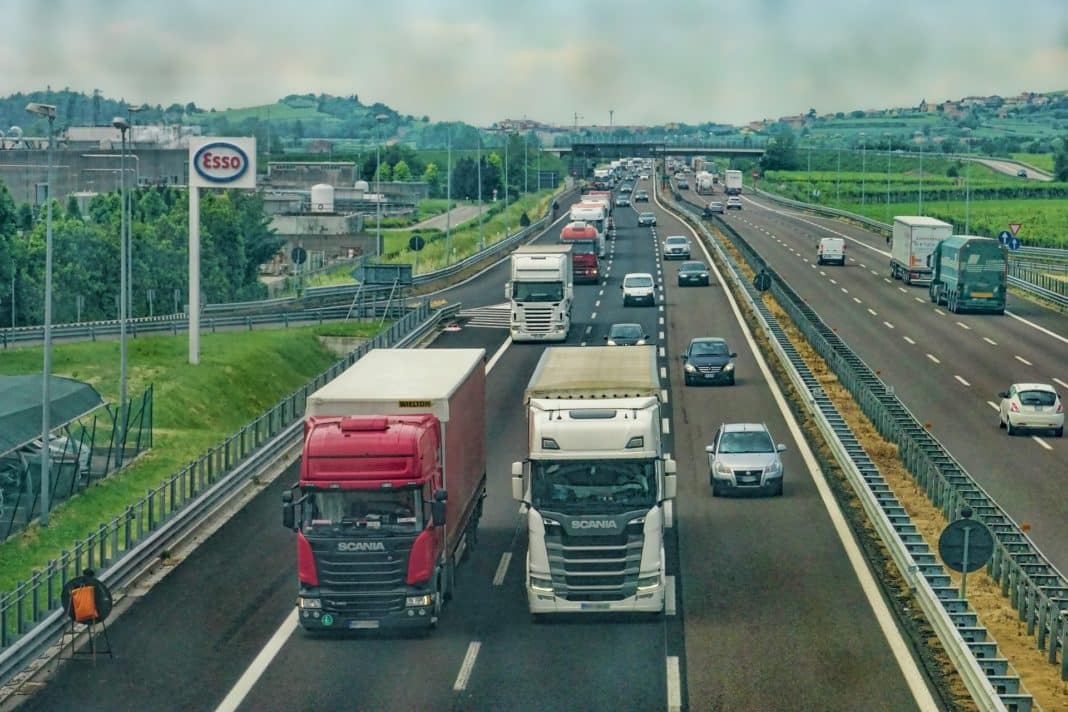From 2 February, the EU is introducing new rules that mean if you operate loaded goods journeys in and between European Member States (cabotage or cross-trade), you may need to register information digitally about your journeys on a new EU web based portal.
This will include details of the operator, driver, driver employment details, dates of travel, and the vehicle used before the journey commences.
This will apply to you if you use:
- vans of any size or other light goods vehicles (sometimes called ‘light commercial vehicles’)
- vans towing trailers
- cars towing trailers
- HGVs
- HGVs towing trailers
This will also apply to you if you transport goods between 2 points in the EU, Iceland, Liechtenstein and Norway for commercial purposes. This includes:
- cabotage jobs
- cross-trade jobs
- moving goods for your own business’ use
Although the portal is not yet available, the EU has said that it will be available ahead of 2 February. To use the service you will need to register, then you will be able to add details of your drivers to reuse when adding journeys.
You can prepare now by getting your information ready ahead of the portal opening for registrations.
You’ll need information about your:
- company
- transport manager
- drivers
Company information
To create your account, you’ll need your company’s:
- name
- address
- country of registration
- email address
- VAT number
- registration number
- UK Licence for the Community number
Transport manager information
To create your account, you’ll need your transport manager’s:
- name
- office address
- email address
- telephone number
- CPC certificate number
- Driver information
To create your account, you’ll need this information for each of your drivers who drive in Europe:
- full name
- date of birth
- email address
- home address
- driving licence number
- driver card number
- internal reference number (for example, their employee number)
- ID document (for example, a passport) – you’ll need the document number, the issue date, the expiry date, and which country issued it
- start date of the drivers’ employment contract with you
- applicable law (what country’s law they’re employed under)
You’ll be able to upload your drivers’ details in a bulk file. Check back for more information about what format this needs to be in.
When you’ve created your account, you’ll then be able to register your journeys (make a posting declaration).
Register your journeys
Registering a journey is also known as making a ‘posting declaration’.
Each time you register a journey, you’ll assign a driver that you’ve already registered on the EU portal.
You’ll also need:
- the start and end dates of the journey (posting)
- the type of operation (cabotage or international carriage)
- the type of transport (goods or passenger)
- the vehicle registration (number plates) of the vehicle and trailer
- contact details for your transport manager or another contact person in the UK (so European countries can ask for further documents)
You will get penalties if you do not register the journey.
Documents your driver will need to carry
From 2 February 2022, your driver must carry a digital or physical copy of the information you register for the journey.
The rules are not changing for the other documents your drivers will need. They will still need to carry all of the usual:
- vehicle and trailer documents
- driver documents – including tachograph records
- export documents – including an electronic consignment note (e-CMR) or a paper CMR
Your drivers will get penalties from the enforcement authorities in the European countries they’re stopped in if they do not have the right documents.
Documents European countries can ask you for
From 2 February 2022, enforcement authorities in EU countries, Iceland, Liechtenstein and Norway, will be able to ask you (as the operator) for:
- copies of the documents that drivers have to carry
- documents about the driver’s pay during the journey, their employment contract and timesheets for their work
You must upload the information you’re asked for using the online service. You must do it within 8 weeks of being asked for it.
The Traffic Commissioners for Great Britain or the Transport Regulation Unit in Northern Ireland will be able to take action against you if you do not upload the information.





